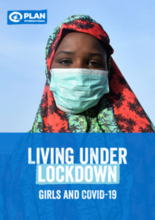To aid understanding of the impact of COVID-19 on girls and young women, as well as talking to girls in lockdown, Plan International has re-examined four previous studies of crises to try and get a clearer picture of the insecurity and vulnerability facing girls now.
Plan International has drawn specific lessons from their study of the Ebola crisis of 2014-2015 in West Africa where school closures and other measures to limit movement had damaging long-term effects on children and particularly girls. Key findings include:
- School closures in all crises have impacts beyond the direct loss of education: the loss of social contact, of the support of peers and teachers, of the opportunity to build networks for the future and the lack of access to sexual and reproductive health and rights information, all have negative effects on girls.
- We face a huge risk of increased child marriage and unwanted pregnancy. In Sierra Leone there was a 65% increase in teenage pregnancy due to girls being out of school during the Ebola crisis.
- Being forced to be at home makes children vulnerable to violence and abuse or makes them witness to the domestic violence that we know is increasing.
- In the Ebola study 88% of adults and children said they faced economic hardships, including lack of food. Girls were often forced into risky behaviour in order to put food on the table.
- Women and girls experienced heightened exposure to the virus due to their traditional roles as caregivers, looking after sick relatives and younger children.

